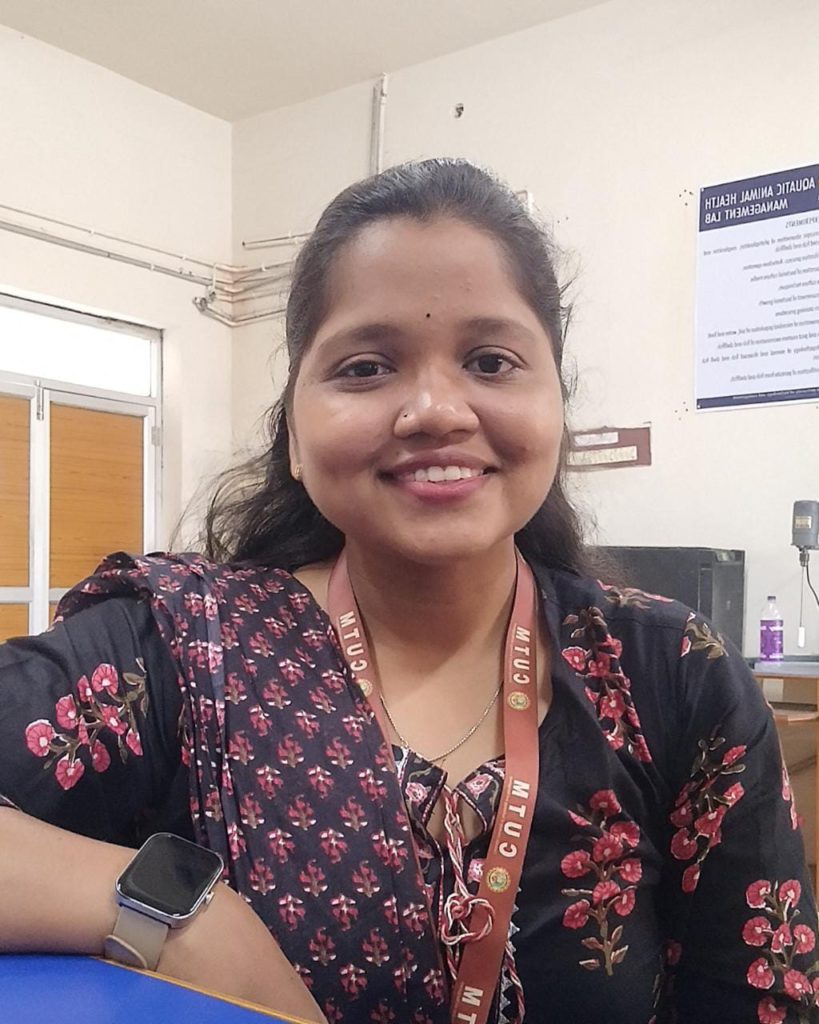per person /
Free
Marine Biology
Course Attendees
Still no participant
Course Reviews
Still no reviews
Course Name : Marine Biology
Code(Credit) : FSEM1205(2-1-0)
Course Objectives
- Marine biology is the study of all aspects of life in the sea and the environment on which it depends. This includes marine plants, animals and other organisms, both vertebrate and invertebrate, in deep oceans, shallow seas and the laboratory.
- The main aims of marine biology are to improve understanding of the marine world and to understand and predict changes in ecosystems affected by human and natural disturbances.
- Marine biology is a broad-ranging career. You could go into field work, academic research, laboratory work, consulting, charity, outreach or policy making.
Course Outcomes
| CO no. | Course outcome | POs addressed |
| CO-1 | Understand the coastal and marine biodiversity and knowledge on the divisions of marine environment | PO1
PO2 PO5 |
| CO-2 | Identify the various life forms in ocean and its relationship with other biotic and abiotic environment | PO1
PO2 PO5 |
| CO-3 | Understands the intertidal ecology, ecosystem, various communities belongs there and its adaptations to various ecosystem | PO1
PO2 PO5 |
| CO-4 | Understands country’s and global marine and brackish water ecosystems and its productivity | PO1
PO2 PO5 |
PO1: Knowledge enhancement: Enhanced knowledge on concepts, essential facts, basics, principles and theories relating to fishery biology,
biodiversity and aquatic environment, aquaculture, fish nutrition, fish physiology, genetics and biotechnology, fish processing, fisheries
engineering, fish microbiology, fishery extension, economics, and biostatistics.
PO2: Professional and Entrepreneurial Skill development: Understanding the value and processes of life-long learning and professional
enhancement and entrepreneurship development.
PO5: Environment and Sustainability: Understand the issues of environmental contexts and sustainable development.
Course Syllabus
Theory
Unit1: Introduction to Marine Biology: Divisions of marine environment- pelagic, benthic, euphotic, aphotic divisions and their subdivisions.
Unit 2: Life in oceans - general account of major groups of phytoplankton, sea weeds, major zooplankton groups.
Unit 3: Environmental factors affecting life in the oceans-salinity, temperature, light, currents, waves, tides, oxygen, and carbon dioxide. Unit 4: Vertical migration of zooplankton, Phytoplankton-Zooplankton relationship, geographical and seasonal variation in plankton production, plankton and fisheries.
Unit 5: Inter tidal ecology: Rocky shore, sandy shore and mud flats, zonations, communities, and the adaptation.
Unit 6: Mud banks: formation, characteristics.
Unit 7: Estuaries: Classification, Physico-chemical factors, Biota and productivity, examples of some Indian Estuaries.
Unit 8: Boring and fouling organisms.
Unit 9: Nekton outline, composition of nekton, habitats of nekton.
Unit 10: Bioluminescence and indicator species, Blooms,
Unit 11: Red tides: cause and effects.
Practicals
Study of common instruments used for collection of phytoplankton, zooplankton and benthos. Collection, preservation and analysis of phytoplankton, zooplankton, sea weeds, Collection preservation and analysis of inter tidal organisms.
Prescribed Books
1. Fincham, A.A. 1984. Basic Marine Biology. British Museum (Natural History), Cambridge University Press, Cambridge, England.
2. Sverdrup, H.U., Martin W. Johnson and Richard, H. Flemming. 1962. The Oceans: Their Physics, Chemistry, and General Biology. Asia Publishing House, Bombay.
Reference Books
1. Ford, Timothy Edgcumbe. 1993. Aquatic Microbiology: An Ecological Approach. Blackwell Scientific Publications, Oxford, London.
2. Levinton, Jeffrey S. 1995. Marine Biology: Function, Biodiversity, Ecology. Oxford University Press, Oxford, England.
Session Plan
Session 1
Marine Environment and its life- Divisions of marine environment
https://www.youtube.com/watch?v=Z8xhciQWL-s&t=101s
1. Marine_environment and its life- Divisions of marine environment
Session 7
Theory 7. Influence of Environmental factors on Marine Habitat
Session 8
Session 10
Theory 10. Energy flow, Food chain, Food web and ecological Pyramid
Session 16
Session 21
Fouling and boring organisms
https://www.youtube.com/watch?v=GGlqzQoBpAE&t=22s
Session 25
Marine Mammals
• Taxonomic classification of marine mammals
• Behaviors of different communities of pinnipids, cetaceans
Session 27
Plankton and fisheries
• Plankton and fisheries in India
• Plankton and fisheries in World
Session 28-29
Theory 28-29. Marine bordered ecosystems- Estuaries
Session 32
Revision and Doubt-clearing session
Practical
Session 1-2: Study of beach profile
Session 3: Collection and preservation of Plankton
Session 4: Collection and preservation of Zooplankton
Session 5: Collection and preservation of Benthos
Session 6: Collection and preservation of Seaweeds
Session 7: Collection of net (micro) phytoplankton
Session 8: Operational details of the closing net
Session 9: Hardy's continuous plankton recorder
Session 10: Method of collection of nanoplankton
Session 11: Method of estimating nanoplankton biomass
Session 12-13: Fixation and preservation of plankton
Session 14: Micrometry and size measurements of planktonic organisms
Session 15: Staining and mounting techniques of zooplankton
Session 16: Field Visit
Question Bank
Sample Assignment Topics
1. Different zones of marine environment based on light penetration
2. Different pelagic zones based on depth
3. Different zones of benthic environment
4. Pelagic organisms
5. Different types of benthos based on size range
6. Classification of plankton based on their size ranges
7. Classification of benthos based on the mobility of benthos
8. Divisions of intertidal zone
9. How wave action affect the distribution of organisms in the rocky intertidal area.?
10. Types of estuaries based on geomorphology.
Our Main Teachers
Ms. Prachi Siddharth Bagde graduated from Maharashtra Animal and Fishery Sciences University and received B.F.Sc degree in 2020. She was awarded ICAR-NTS (PG-2020) Fellowship for postgraduate program. She has completed her M.F.sc in the Department of Aquatic Environment Management in 2022.
School of Fisheries Centurion University of Technology and Management (CUTM) Paralakhemundi- 761211 Odisha, INDIA Cleared ICAR – ASRB NET in FISHERIES RESOURCE MANAGEMENT B.F.Sc. (Fisheries Science)- 2013, College of Fisheries, Mangaluru, Karnataka Veterinary, Animal and Fisheries Sciences University (Bidar), Karnataka, India M.F.Sc. in Department of […]


